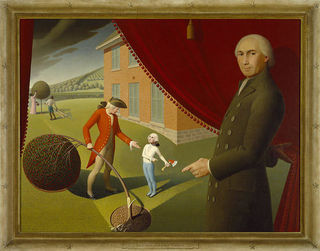
Deception
Does Your Child Lie?
Understanding why kids fib gives parents better tools for guidance.
Posted January 16, 2018
A recent review of developmental research noted that lying is normal and associated with intelligence. While parents may find some comfort in these findings, they still want their kids to tell the truth and may feel frustrated and angry when they catch their children lying. After all, we hope that our kids will grow into moral adults who are honest in their relationships with family members, co-workers, and neighbors. So how do we reconcile this paradox? On the one hand, it's normal for children to lie, but on the other hand, we expect them to tell the truth.
Part of the problem is that parents often expect kids to think and act like adults, but this expectation is unrealistic and inappropriate. Young children are primarily interested in avoiding punishment, so they often lie so that they won't get in trouble. Conversely, adults recognize that although telling the truth may result in negative consequences, it has the effect of building trust and enhancing relationships. Moreover, young children have a difficult time separating fact from fiction and in some cases may believe that the lie is true.
What should parents do when children lie? Before we get to that, consider ways that parents can actively prevent lying. If you know that your child took a cookie that he wasn't supposed to eat, don't ask, "Did you take the cookie?" By asking the question, you're setting your child up to lie. As an alternative, consider gently saying, "since you ate that cookie, we've had enough sweets for today." This kind of interaction allows you to set some appropriate limits and keeps the child from being put in a position of trying to lie to avoid punishment.
If your child does lie to you, keep in mind that the behavior is normative and that there's usually a reason behind the behavior. Trying to see things from the child's perspective often helps parents appreciate their point of view. When your child tells you that she brushed her teeth when she didn't, consider why she may have fibbed. Perhaps she doesn't like brushing her teeth or wants to please you by reporting that she has. A punitive approach that involves scolding or punishing for the misrepresentation may only encourage more lying in the future (to avoid more scolding). Instead, consider framing it as a misunderstanding (e.g., "Maybe you thought you did, but perhaps you forgot. Let's brush our teeth now just to make sure they're clean"). This approach is a win-win: your child is given the benefit of the doubt and dental hygiene is accomplished.
Parents may also want to teach their kids about the value of telling the truth by using bibliotherapy, which involves reading books to kids to help them. One recommended title for kids is Eli's Lie-O-Meter from Magination Press. Consider reading this with your children and having a conversation afterward. Learning about values can be light and fun and need not be preachy. As kids develop, they can also be quite articulate about why children lie, so be sure to listen to what they have to say.


